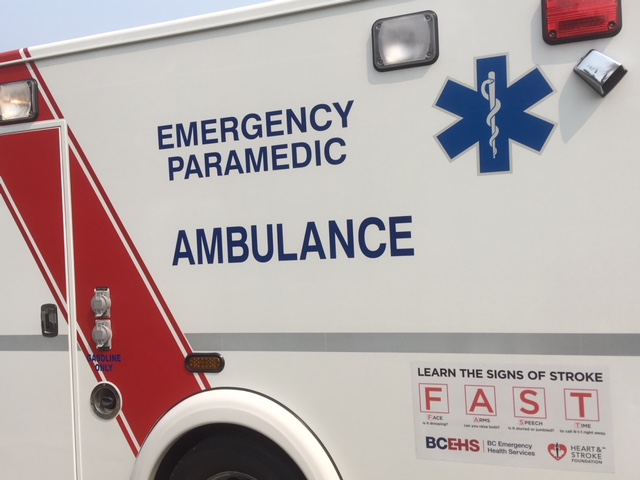B.C. paramedics are grappling with the opioid crisis.
From April 16th to 26th, B.C.’s five health authorities responded to 1,159 potential overdose calls.
This includes 222 in the Island Health region.
BC Emergency Health Services spokesperson, Sarah Morris, says paramedics are administering more Naloxone than ever before.
She added that this is due to the potency and toxicity of drugs.
“This means it takes more time to stabilize a patient at the scene before transporting to hospital,” Morris said.
“Administering naloxone is one part of the protocol paramedics follow when caring for overdose patients.”
July 2020 saw the highest ever number of overdose calls in one month for BCEHS, with paramedics responding to more than 2,700 overdoses in communities across B.C.
“BCEHS paramedics and medical emergency call takers have saved the lives of many overdose patients since the crisis was declared in 2016,” Morris said.
“We’re very proud of the professionalism and dedication to patient care our frontline staff have shown throughout this crisis.”
Last year, BCEHS paramedics responded to more than 27,000 overdose calls.
The total number of responses to overdoses (27,067) represented an increase of 12 percent over the previous year.
Paramedics are responding to an average of 74 overdose calls a day.
With this in mind, the BC Coroner’s office reports the vast majority of overdose deaths happen when people use alone because there is no one to call 9-1-1.
It’s why the BCEHS stresses the importance of not using alone, and to call 9-1-1 if you see someone who may be experiencing an overdose.
When BCEHS paramedics respond to a potential overdose patient, the patient has a 95 percent chance of survival.
If someone does use alone, BCEHS encourages them to use the LifeGuard App.
“It has already saved lives since it was launched in May 2020,” Morris said.






